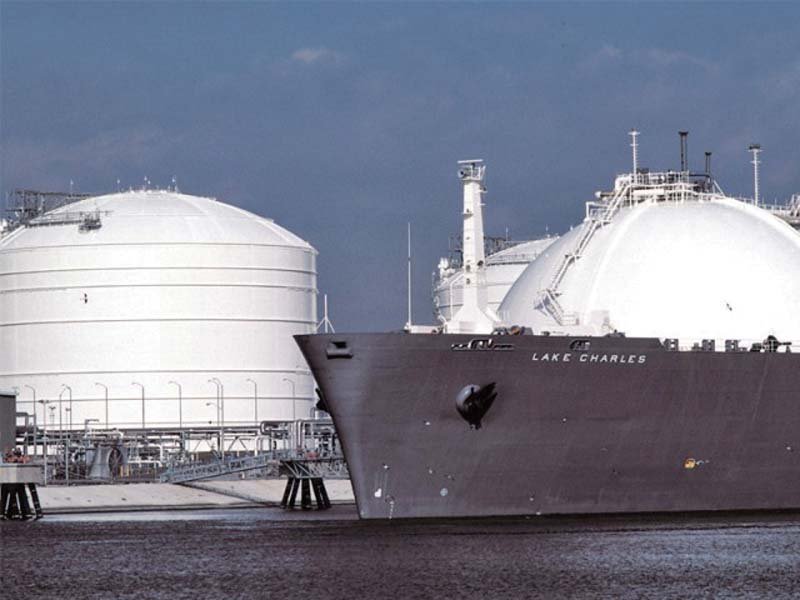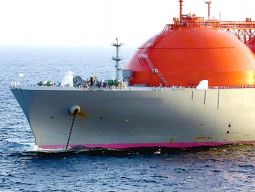
Liquefied natural gas (LNG) is by far the cheapest imported fuel on which Pakistan can rely to meet its future energy needs, said Elengy Terminal Pakistan Limited (ETPL) Chief Executive Officer Syed Mohammad Ali.
“The cost of re-gasified LNG stands at $9.37 per million British thermal units whereas the imported furnace oil costs $10.62 per mmbtu, high-speed diesel costs $20.03 and liquefied petroleum gas (LPG) costs $17.6,” Ali said while talking to a group of journalists on Wednesday.
Govt mulls forming ‘Pakistan LNG Limited’
He pointed out that ETPL had built a $135 million state-of-the-art LNG terminal at Port Qasim in just 318 days and that too with 100% private investment. The step taken to set up LNG import infrastructure was in the right direction and the country needed another three to four LNG import terminals to tackle the current crisis, he said.
Ali was of the view that the project would help resource-constrained Pakistan save more than a billion dollars per year in energy costs, adding the LNG import cost was expected to remain below 14% of Brent crude’s three-month average price.
Since being operational at the end of March last year, the LNG terminal has brought about one million tons of LNG in 17 voyages, representing 88% utilisation of the ETPL’s handling and re-gasification facility in the first nine months.
According to the contractual obligation for the first year, the government is supposed to import around 1.5 million tons of LNG.
Fuel choice: Nawaz reviews progress on LNG power plants
Capacity and utilisation charges at the terminal stand at $0.66 per mmbtu, which Ali called the lowest in the world compared to regional terminals such as Arun LNG Terminal of Indonesia which collects $2.5 from importers, Kochi Terminal of India that receives $1, Adriatic and LNG Toscana terminals of Italy which get $1.47 and $1.2, Klaipedos Nafta Terminal of Lithuania that charges $0.88 and those in China, Korea and Japan that charge $0.8 to $1.
Ali described the fee of $272,000 per day for the LNG terminal, which was widely quoted, as misleading. “This is just the first year rate and the levellised capacity charges for 15 years are $219,589 per day.”
These charges include all the costs such as the Floating Storage and Re-gasification Unit (FSRU) lease rate, taxes, royalties, manpower cost, insurance, operation and utilities costs, maintenance cost and capital expenditure of $135 million on the terminal.
Natural gas meets 35% of power generation needs, 23.8% of industrial requirement, 15.6% of fertiliser production needs, 5.4% requirement of CNG outlets and 18.1% of the household fuel consumption.
At present, Pakistan faces a gas shortfall of 2 billion cubic feet per day (bcfd) or 33% of the total demand. Domestic gas supply is expected to further slow down to 1.5 bcfd in 2030 (from 4 bcfd today) and the demand-supply gap is expected to widen to 7 bcfd over the next 15 years.
This gas shortage is causing an economic loss of up to $1 billion per year to the country, which is forced to import expensive furnace oil, kerosene, LPG and diesel to fulfill energy requirements.
Government comes under fire over LNG purchase at ‘high prices’
“This is the reason why the world is turning towards LNG. Global and emerging economies such as China, Korea, Japan, India, Thailand, Indonesia, European Union and Brazil ensure LNG remains part of their energy mix,” Ali said.
Japan imports 80 million tons of LNG per year and India imports 15 million tons. In addition to being cleaner and safer, LNG should be recognised as the fastest solution to ease the burden on Pakistan’s economy, Ali said.
Published in The Express Tribune, January 7th, 2016.
Like Business on Facebook, follow @TribuneBiz on Twitter to stay informed and join in the conversation.



































1713853507-0/MalalaHilary-(2)1713853507-0-270x192.webp)







COMMENTS (1)
Comments are moderated and generally will be posted if they are on-topic and not abusive.
For more information, please see our Comments FAQ